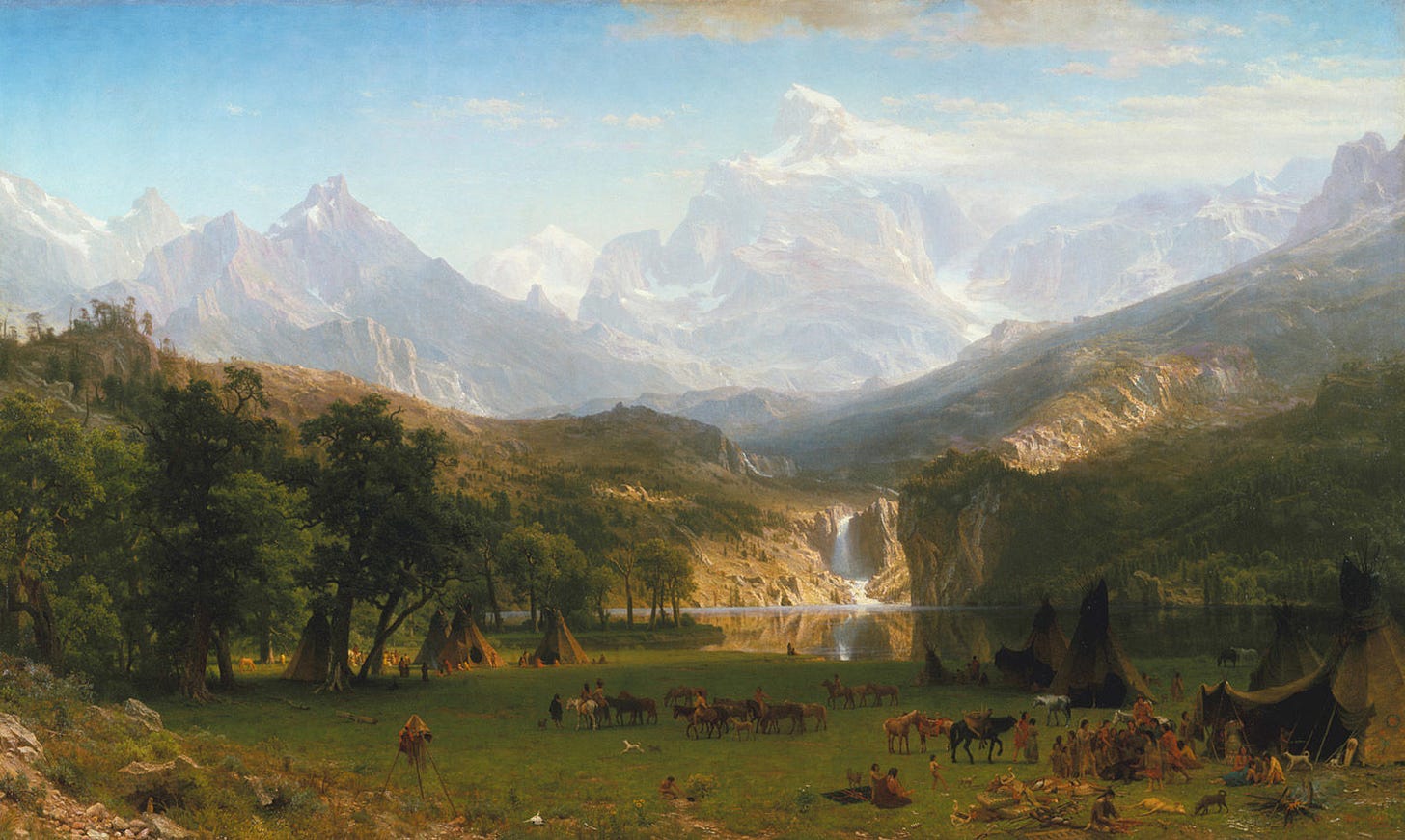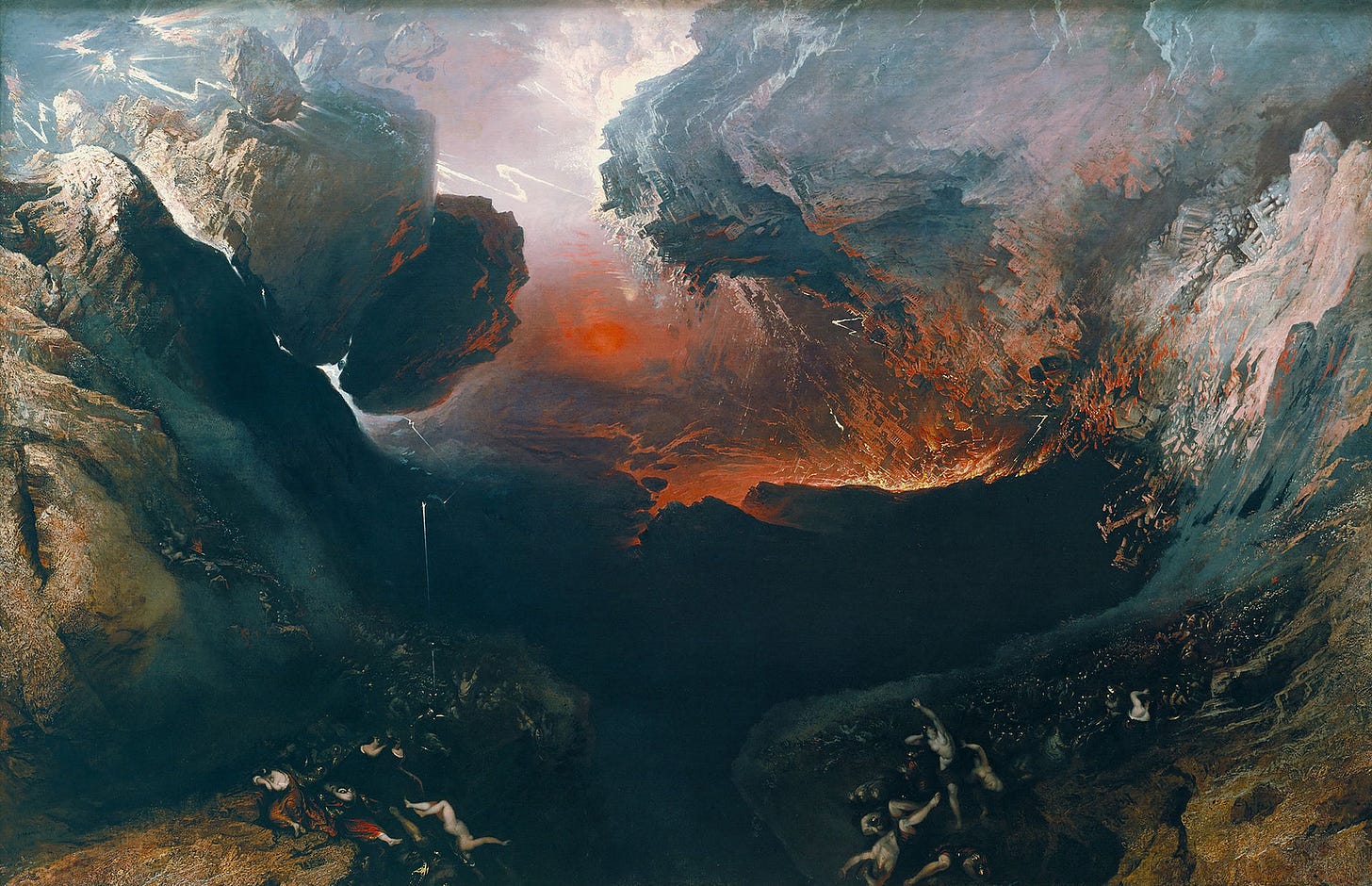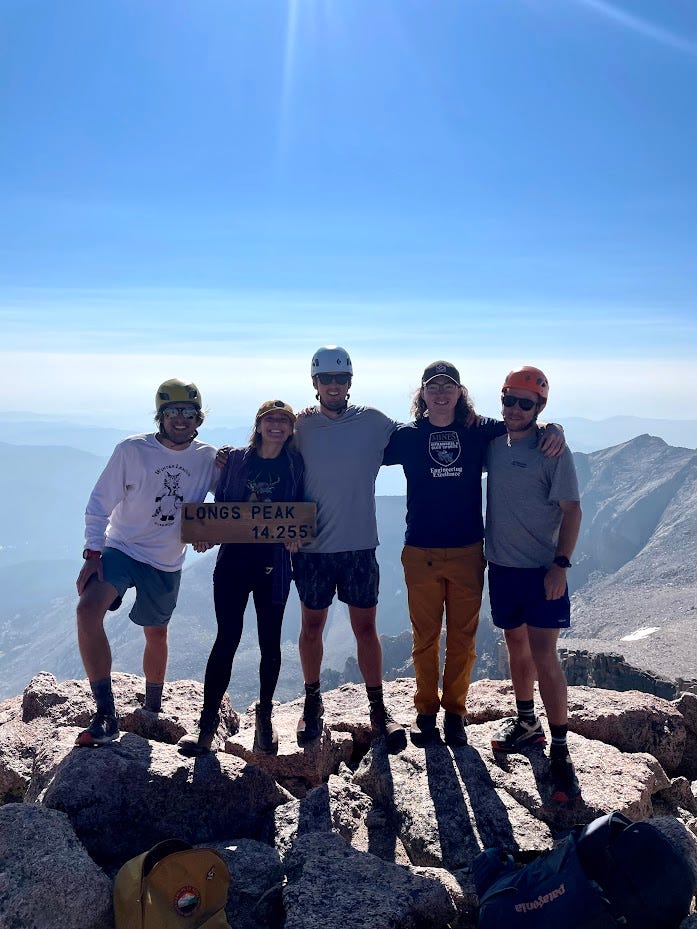Note: This isn’t serious.

As humanity’s consideration of environmental ethics has evolved, so has its relationship to the natural world. In the time of Genesis and Aristotle, all the way up until the Romantic period, Nature was perceived to be a punishment; even the word ‘wilderness’ was, as pointed out in William Cronon’s essay The Trouble With Wilderness, synonymous with desolate, barren wastes.

After millennia of this antagonistic relationship, in the 19th century a new perspective took hold: wilderness now represented a chance to return to Eden. The zest for experiencing Nature exploded. The efforts of people like John Muir and Teddy Roosevelt established a model National Parks system in the early 20th century, which now allow around 300 million people to enjoy the promise of Eden annually—that’s a visit for almost every citizen in the United States.
These pioneers of the environmental movement were visionary in their understanding of the importance of environmental preservation and experience. It is our duty to not just honor their vision; we must expand upon it.
For this reason, I propose that we pave the 14ers.
There are 58 peaks over 14,000 feet of elevation in Colorado. These “14ers” are scattered across the state, from the Front Range to the San Juans. These peaks offer unparalleled views of the natural beauty of the state to those lucky enough to summit them. To date, though, access to these wonderous places has been limited to only those with the fitness, time, equipment, know-how, risk tolerance, and dedication.
We must democratize access to 14ers.
Already there exists a model for this vision: the roads up Mt. Evans and Pikes Peak. Reaching more than 14,000 above sea level, the Mt. Evans Scenic Byway and the Pikes Peak Highway are the two highest paved roads in America. They represent a dream of the future.

This dream is one of unity, one where any individual can reach into the heavens, even if just for an ephemeral day trip from Denver in a rental 4Runner. One where you can purchase a hot dog and browse the wares of a souvenir shop in sparse alpine air. One where the literal heights of our society are not confined only to those with the means to reach them on their own.
Our ancestors dreamed big: on Pikes Peak, for instance, the first road to the summit, which serviced wagons, opened in 1888. Why should we allow ourselves to be constrained by the ambition of the past?
Already, more than half a million people ascend the road to Pikes Peak annually. These visitors not only leave with inspired minds, but they also leave an immense economic benefit to the communities surrounding the mountain and the state as a whole; visitors in the Pikes Peak region spent $1.7 billion in 2018. In the construction phase alone think of the jobs that would be created in the service of expanding our proud infrastructure to the yet-unpaved summits; it would be like a new New Deal.
Who is served by the empty mountaintop? The unpaved fire road? Only the outdoors élites, who have incentive to gatekeep the rest of society from access to these natural resources that belong to all of us.
Just like the proposed construction, the road to achieve this dream will not be an easy one. Advocates will be forced to reckon with strong entrenched interests: Sierra Clubbers, Boulder Hardos, hiking clubs from around the country, and all their ilk will likely come out in staunch opposition to this plan, for reasons of morality, practicality, and, perhaps more than anything else, vanity.
But the vision I advocate for here—one of access for the Everyman, expansion of the frontier, and, above all else, increased marginal utility—will not be easily defeated by legions of Patagonia-wearing, John Muir-quoting sheep.
If you’re interested in joining this grassroots movement, shoot me an email. I can’t wait to see what progress we can make against this noble goal using the tools of collective action, bottom-up mobilization, democratic organizing, and solidarity building.
Yours in elevation,
Michael





Democratization of access is a noble past time, but how does one prevent the commercial onslaught that follows roads and cars? The environment that is sought to be shared must be destroyed in the name of those unworthy to conquer it.
The top of Pikes Peak is a literal pile of shit.